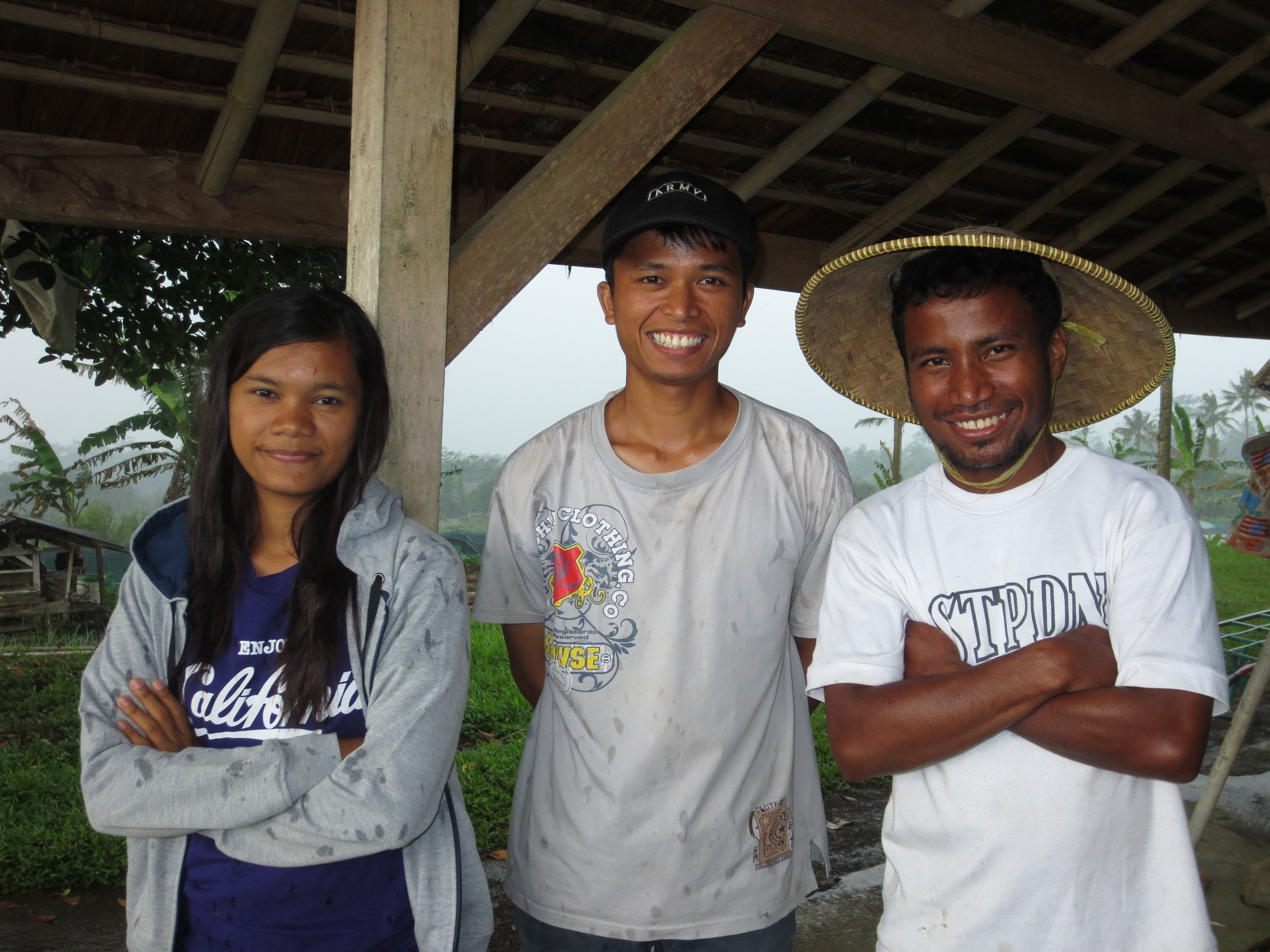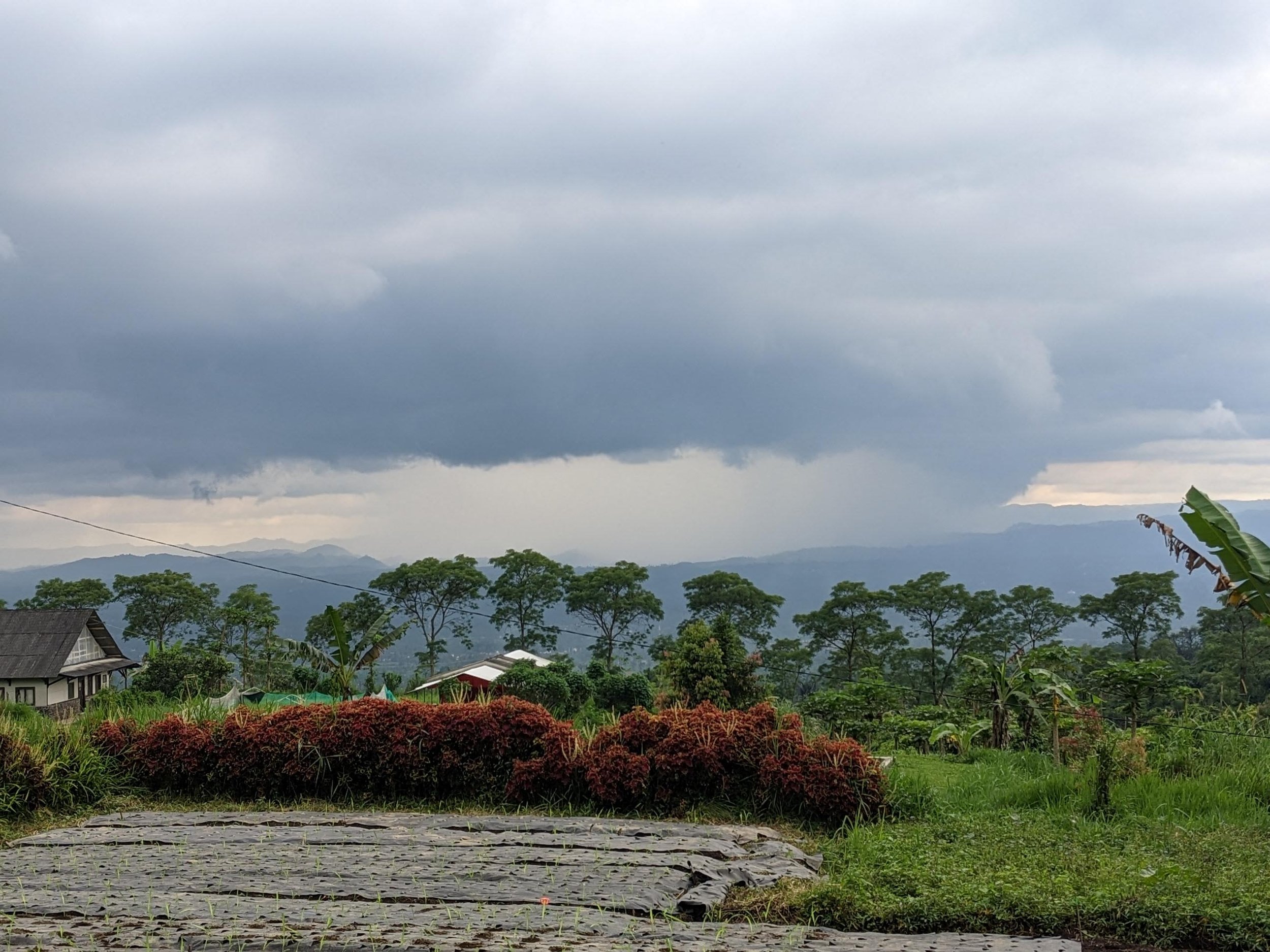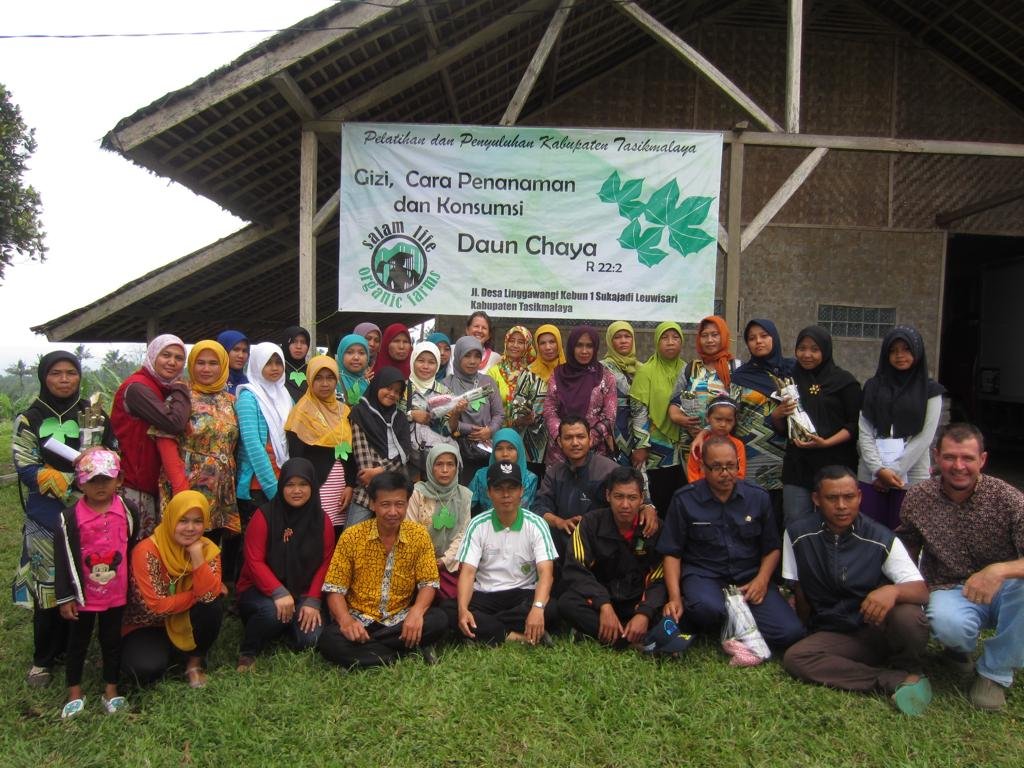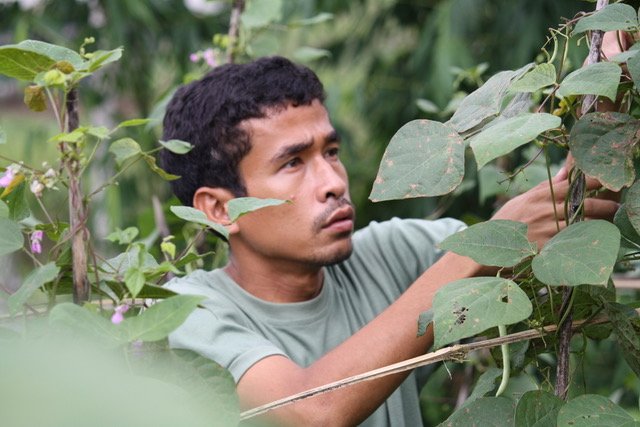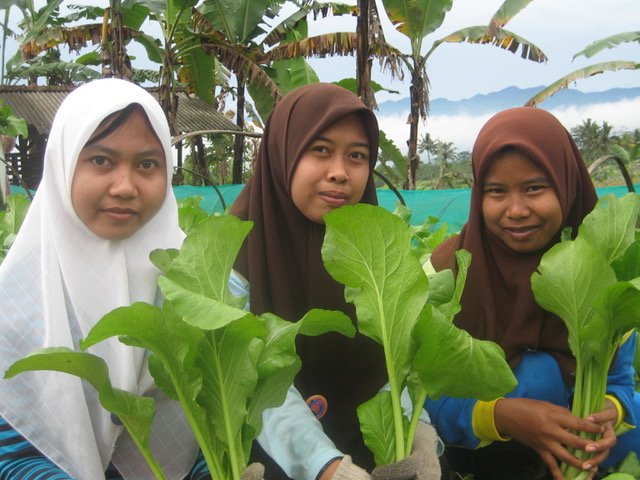Center for Entrepreneurial Food Producers
The Challenge
Agriculture in Indonesia makes up a significant part of its industry and landscape. It “employs one-third of Indonesia’s labor force, and is dominated by smallholder farmers (93%). The sector is central to Indonesia’s capacity to nourish its growing and increasingly urbanized population with evolving food preferences” (Wordbank.org, 2021)
Yet, there are significant struggles with Indonesia’s future agriculture sustainability. Young adults are not continuing the agricultural activities of their parents resulting in urban migration and/or vast underemployment. “The majority of farmers in Indonesia did not advance beyond primary school, are over 45 years old, and do not use the internet” (Worldbank.org, 2021) “The country lost 5.1 million farmers between 2003 and 2013, with their numbers falling to 26 million, according to Statistics Indonesia (BPS)” (thejakartapost.com).
Local governments are also recognizing the importance of getting younger people involved in farming and fisheries by recruiting what they call Millennial Farmers, who use social media and the internet to increase supply chain access and precision agriculture. Yet this is only one portion of the problem.
Rural communities are moving away from food production on their own land to becoming agricultural labor on contracted land which are using full chemicals under the management of commercial growers. Farm laborers and communities living in the vicinity of commercially managed land are facing increased exposure to agricultural chemicals in their work and living environment; and face greater threats to environmental problems including potable water scarcity, soil erosion, and flooding.
As rural communities are producing less food on their own land, rural communities are becoming more dependent on purchasing food and consuming more processed food, thus resulting in poorer nutrition including stunting in children. “The average prevalence of stunting under five in Indonesia from 2005 to 2017 is 36.4%” (HSOA Journal of Food Science and Nutrition, 2021).
A Solution
The Center for Entrepreneurial Food Producers in Indonesia exists to train young (under 40 yrs old) food producers with entry level involvement in sustainable agribusiness activities. They will train small and medium scale food producers in both production and agribusiness practices. This happens through a 15-week residential apprenticeship on a 22 acre farm located in Indonesia.
The Center partners with local vocational schools as an outlet for training and potential future employees. They will also provide short-term introduction courses in English in its residential programs.Through their efforts, they plan to teach young food producers how to grow organic sustainable products. All of this will address the future of farming, proper nutrition, and environmental concerns.
These solutions target a recent statement by the Heads of the Food and Agriculture Organization, International Monetary Fund, World Bank Group, World Food Programme, and World Trade Organization on the Global Food Security Crisis who sees that the world food security crisis can be helped with “providing immediate support to the vulnerable [and] investing in climate-resilient agriculture” (WorldBank.org, 2022).
Business Geared Toward Providing Sustainable Food, Creating Decent Work, and Promote Efficient Use of Natural Resources.
Target: Promote nutritious and locally adapted crops and perennial plants which contribute to the reduction of stunting and wasting in children under 5 years of age, and address the nutritional needs of pregnant and lactating women and older persons (adapted from 2.2)
Increase the agricultural productivity and incomes of small-scale food producers through promoting productive resources and inputs, knowledge, markets and opportunities for value addition and non-farm employment (adapted from 2.3)
Promote sustainable food production systems and implement resilient agricultural practices that increase productivity and production, that help maintain ecosystems, that strengthen capacity for adaptation to climate change, extreme weather, drought, flooding and other disasters and that progressively improve land and soil quality. (Adapted from 2.4)
Target: Promote and support productive activities, decent job creation, entrepreneurship, creativity, and innovation (Adapted from target 8.3).
Target: Promote the sustainable management and efficient use of natural resources (adapted from target 12.1)
Measured by:
Metrics for Phase 1: Preparation Phase
Progress made on the apprenticeship program each quarter.
Progress made on infrastructure development each quarter.
Number of visitors to the Center or visited by staff who receive basic sustainable agriculture presentations each quarter.
Number of household-level food producers who have been trained each quarter in the growing and consumption of chaya as a concrete step towards reducing stunting.
Number of full-time, part-time, and temporary employees (not including apprentices) of the organization that are earning a local living wage or higher as of the end of the quarter.
Show how much money flowed to this area that would not have otherwise without the project for economic growth.
Total amount of land owned.
Amount of land being sustainably cultivated each quarter.
Number of kgs of food produced by apprentices and farm staff using sustainable techniques each quarter.
Additional Metrics for Phase 2: Beta-Phase
Number of food producers under 40 that are currently participating in a beta-test of the 15-week apprenticeship program.
Additional progress that has been made on the apprenticeship program each quarter.
Number of household-level food producers who have been trained each quarter in the growing and consumption of chaya as a concrete step towards reducing stunting.
Remove the metric of ‘total amount of land owned’.
Additional Metrics for Phase 3: Full Operations Phase
Number of food producers under 40 that are currently participating in a 15-week apprenticeship program.
Number of food producers under 40 that have completed a 15-week apprenticeship program (Please list total number known throughout the duration of project).
Amount of scholarship funds provided to apprentices.
Minimum criteria for scholarship selection are as follows:
Middle school graduates with a minimum of two years paid or non-paid experience in food production including work done on their family’s land.
Demonstrated interest in career involvement in organic food production including future plans following the apprenticeship.
Recommendation from their school and/or community leadership for the program.
The Center for Entrepreneurial Food Producers in Indonesia exists to train young (under 40 yrs old) food producers with entry level involvement in sustainable agribusiness activities. They will train small and medium scale food producers in both production and agribusiness practices. This happens through a 15-week residential apprenticeship on a 22 acre farm located in Indonesia.






What Does Your Donation Go Towards?
Acquisition of Land.
Employee Initial Salaries - bookkeeper, security, farm maintenance, training managers.
Farm Equipment - ATV w/ trailer, mow w/ bagger, tiller, and other small machinery.
Building Supplies - renovate or upgrade current facilities and build necessary amenities for apprentices’ residency.
$400 covers 50% of the costs for one apprentice for an entire training experience.
$250 provides a half day chaya training for 25 participants in a rural community including providing 5 chaya stalks to each participant for planting resulting in the potential for improved nutrition for 25 households and over time for an entire rural community.


